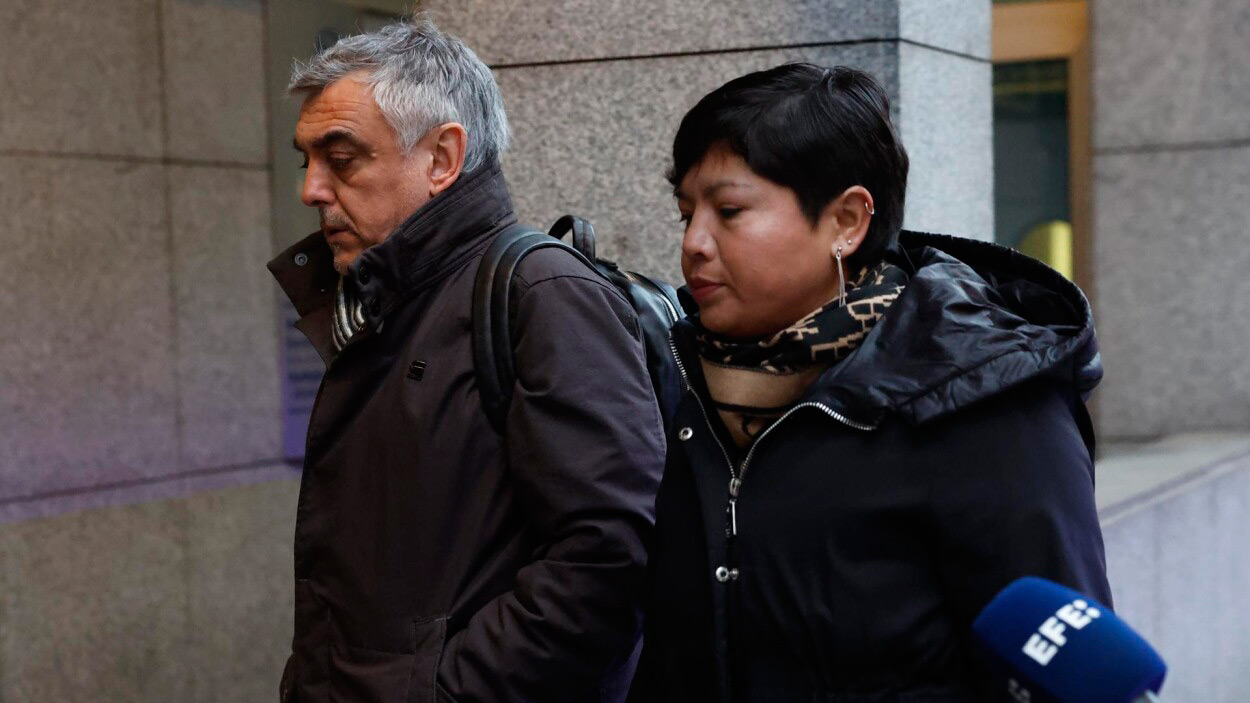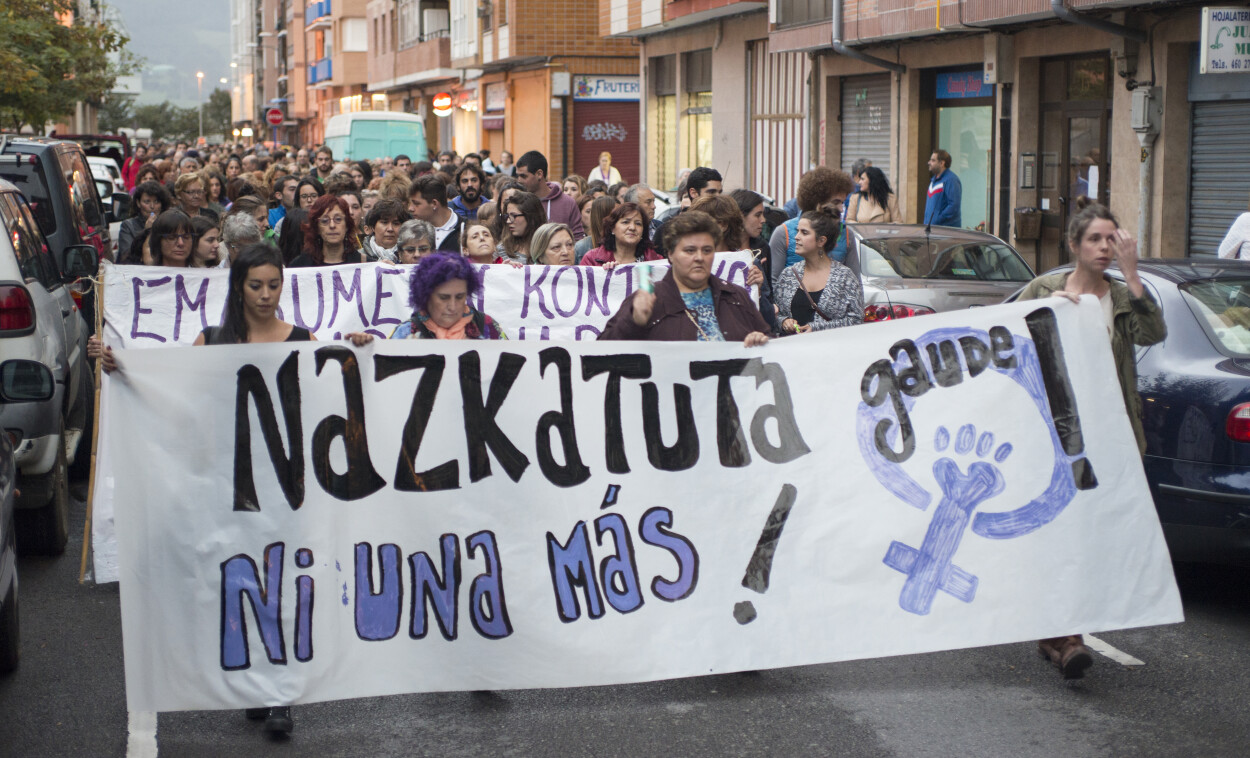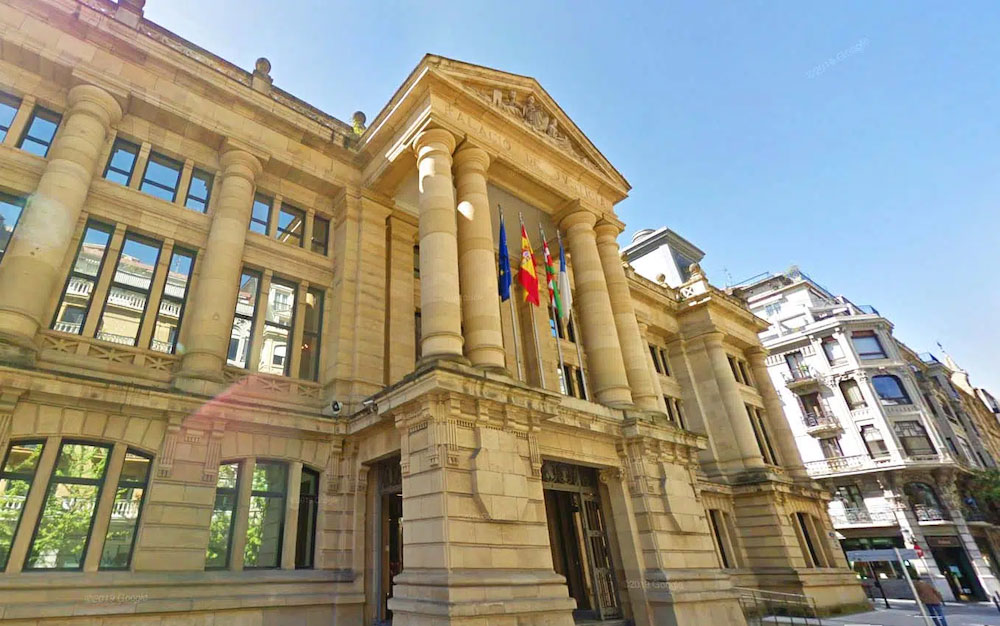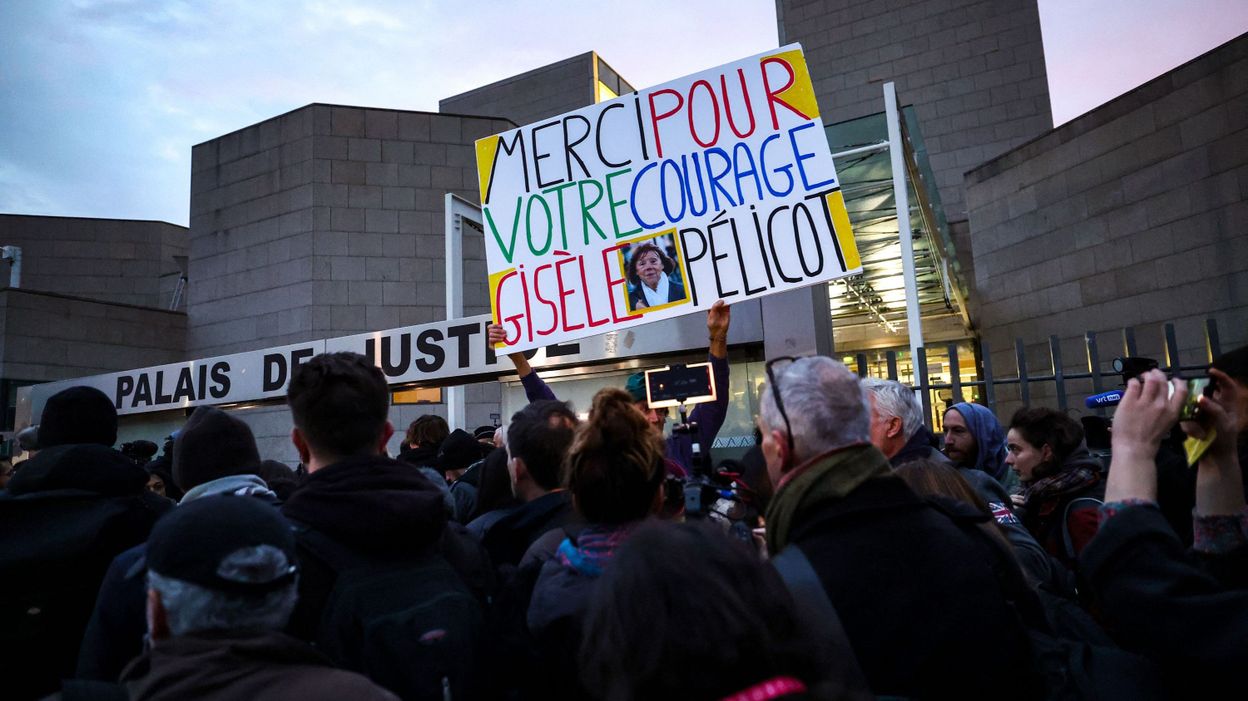The case of Mazan becomes a place to judge the culture of rape
- The case of Mazan, opened by Gisèle Pelicot, has lasted three months, and it has been investigated for years that his husband had been drowned with sleeping pills and that he and dozens of others had raped him about 200 times. 51 men have been tried and the prosecutor has asked for 20 years in prison for his former husband, Dominique Pelicot, and for the others between four and eighteen years old. So far, the abominable case, because in the end Gisèle wanted to open the spotlight to look at the element that is at the base and in the whole: the culture of rape. The judge refused to open the court's doors "to open the eyes" of a chauvinist and patriarchal society that drags the problem to the center of the plaza and "turns rape into a normal thing", he added.

I haven't discovered anything extraordinary in itself, but greatness, because so far we haven't seen about 50 cases of rape. But, if not, there has been nothing extraordinary in practice, in the conception that there is of rape or in the nature of the victim – the unlimited mood, the objective of the judgment serving for something and the opening of the doors of the court. After all, this case reminds us to what extent rape is structural in our society." These are words of Mrs. Anne Bouillon, who speaks of the case of Mazan (Occitania), opened by Gisèle Pelicot, for which her husband had been drowning for years and which she and dozens of other men raped about 200 times. #MeToo et la justice: après le choc Mazan, en finir avec la culture du viol? (#MeToo et Justice: After the Mazan coup, is it the end of the culture of rape?) The analysis of Bouillon can be heard in an interesting round table.
In the writing of the report, the punishment of Mazan’s rapists is not known, but it will be known when the reader has it at hand. However, the prosecutor has asked for twenty years in prison against former husband Dominique and for ten to eighteen years for other men – one has only been charged with "sexual harm" and four years in prison against him, all others, rape. The trial against 51 men, begun on 2 September last, has lasted a long time, and Gisèle has been collecting the arguments and explanations of the defense, so firm and persevering, surrounded by his relatives, and persevering thanks to the strength of feminist protection that has been consolidating and massifying day by day.
Whatever punishment is imposed, the case opened by Gisèle will leave us with a lot of contributions. We will list them here, from the analysis of mainstream media reports and the few feminist analyses found on the right left.
Breaking stereotypes
One of them is the visibility and dismantling of stereotypes related to rape. On the one hand, the fact that rape has appeared pulseless and without modesty clashed with the traditional imaginary of the victim: he is not a sick person – in the sense of the poor – nor an uncontrollable hysterical person. Gisèle's "dignity" has been almost underlined by all the media. There is no doubt that it is worthy, but the Quebetsu writer Martine Delvaux, the feminist writer, said in Libération: "Let us stop talking about the dignity of Gisèle Pelicot, because there are no good victims or bad victims. Anyone who has suffered sexual violence is worthy." Journalists have insisted on their care, their elegance, their calm and their coldness. Despite all the solidarity of Gisèle, Delvaux develops: "Unfortunately, the media descriptions tell us about all those who are not mentioned, about the attacks that we have made invisible or that have not been believed to respond to the image of the 'good victim'. 'Good victim' is also the 'good woman' that Virginie Despentes cites in his book The Theory of King Kong (Txalaparta, 2017), that is, the female ideal, normative femininity, which resembles what a woman should be, although it really did not exist. What to think is the comparison of the descriptions that have been used for Gisèle and other raped. In the opinion article Delvaux offers several examples: "How would we talk if it wasn't white?" If I was young? If I had tattoos and piercings? Was he wearing a short skirt, a leotardo, a short, narrow t-shirt? If I had been a sex worker, factory worker or unemployed? Do you have a mental illness or are you living with a manifest disability? If the head was tilted, the feet crawling or the crooked back?
Moreover, the figure of the rapist has been denied. In view of the 51 profiles of judged men, it has become clear that the aggressor is not a "monster", nor a stranger who suddenly throws himself upon us. "The rapist is an ordinary man, who faithfully carries the everyday, well-integrated around him. The rapist is not a ‘monster’, the rapist is an ordinary man. That's called an "alteration strategy," the creation of two groups, the creation of a new set different from our own. Rapists usually enter that group other than ours: marginal, ‘crazy’, foreign… But not. They are ordinary men around us, whether we want it or not, or rather, even if we don’t want it,” we wrote in Monsieur Tout’s analysis about Mazan’s case.
Gisèle did not condone that the court door was closed and opened his hell to everyone, with his decision: -Because shame has to change its place.
Basically, the culture of rape.
The trial has served to open up the specific case of the woman raped by 51 rapists and to place the problem in a more general context: the question of the culture of rape. Because a culture is that of rape, led by a systemic organization. If not, how can we explain that in the French State, which holds the Mazango case, 210,000 attempts at rape or rape are counted each year and that the Justice System does not follow 94% of the complaints of rape? Gisèle has set out to bring to light the culture of rape: "It is time for this chauvinist and patriarchal society, which becomes a normal violation, to open its eyes."Gisèle's lawyer, Stéphane Babonneau, also told the judge: "We have to put an end to the idea that the body of women is the object of conquest. No one says that men are toxic by nature, but they are much more likely to be violent, largely because of the representations they have received in their construction."
Feminism and antifeminism
During the trial, Gisèle thanked the support and solidarity shown by feminists: “I am deeply moved by your support, and I take the responsibility that, thanks to all of you, I can fight to the end. I direct this fight to all people, women and men, victims of sexual assault. I mean to all the victims: you are not alone.” Specifically, from the first day to the end of the case, dozens of feminist associations and thousands of feminists have shown their support for the cause.
In parallel, the defence allegation has been plagued by anti-feminist arguments. In the report Plaidoiries au procès Mazan: feu nourri contre les féministes (alleged in the Mazango case: fire against feminists) of Mediaparte some anti-feminist and misogynist phrases that have been heard in the trial: "All they expect is for the guillotine to fall on these poor devils"; "to go to Iran or to Afghanistan [feminists]"; "that parasites and [feminist] elements that have been a source of useless tension do not channel the sentence"… Even Gisèle and his environment have had to hear hateful phrases that will not leave written on paper.
In essence, the defence statements have revealed the inability of the Justice to protect the raped. It would be unbearable for anyone to see the painful, dirty, violent and destructive statement that Gisèle heard for three months. Attorney Carine Durrieu Diebolt writes: "There are unjustifiable defense strategies – unfair interference and insults in private or sexual life – that aim to put an end to destruction. (…) In order to avoid such an overload of trauma, lawyers should defend themselves with restraint and humanity, and judges should address the issue of secondary victimisation. This is not, of course, about undermining the presumption of innocence and the rights of the defence, but about questioning the balance of our criminal procedure, as advised by the European Court of Human Rights, adding another conventional principle: the protection of the victim."
In the context of the Mazango case, half a hundred feminist associations have developed a comprehensive law that goes against sexual assault. Of course, of those 130 measures, there is also a question of justice.
Zur eta lur hartu dituzte Nafarroako Berdintasun teknikariek festa girorako enpresa zenbaitek egindako proposamenak. Edalontzia estaltzeko tapak edo eta edarian drogarik dagoen ikusteko eskumuturrekoak.



















.jpg)

.jpg)

